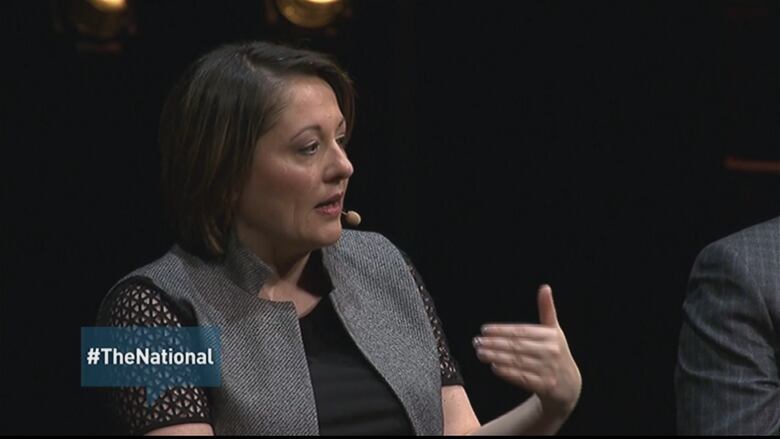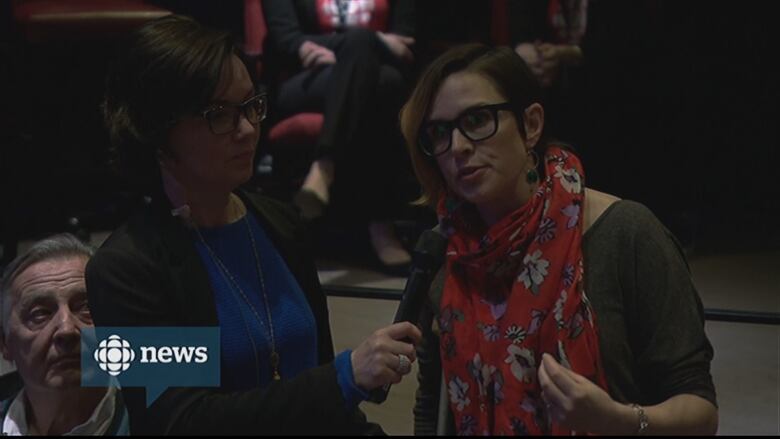Why Power & Politics host Rosemary Barton started reading Breitbart
Ignoring views you don't agree with is not a good reporting technique, says Barton

Power & Politics host Rosemary Barton changed her reading habits after Donald Trump was elected US president.
Her comments were prompted by a question at The National in Conversation: The Changing Nature of News panel discussionfrom Charlottetown's Bonnie Stewart about whether covering extreme views iscontributing to the polarization of society particularly in connection to some of what's being said in the United States,but also in Canada.
"I think the danger of not giving voice and listening to some of the things that you're talking about is that it ignores people who are feeling things, or become increasinglydisenfranchised by society," said Barton.

After American election, Barton realized shewasn't reading any of the media sites that people who liked Donald Trump were reading.
"That's a problem. That's a problem for me, because then it means that my lens on what was happening was limited."
So she started following the far-right American news, opinion and commentary websiteBreitbart, and other "further right" letters and papers.
It doesn't mean putting people who are racists on TV
"I don't think you need to put the alt-right views, as they're called, neo-nazis, people who are racists, on television," said Barton. "But I think if you ignore it the problem doesn't go away, and part of our job, a political reporter's job is to make sure I hear all the voices."
She said Twitter is a good way for her to do that. Barton said she is looking for people who don't watch or listen to CBC, or ones who know how toemail her.
"Because sometimes if you listen it validates their existence, and that's also part of my job,"she said, addingyou have to expose things in order to understand them.
She pointed to Kelly Leitchwith her desire to have newcomers face a Canadian values test as a good example.
"You can either ignore Kelly Leitch and say that's a crazy idea, or you can go to Kelly Leitch and go 'What does that mean?' That to me is a muchmore responsible way to go as a journalist."












_(720p).jpg)


 OFFICIAL HD MUSIC VIDEO.jpg)
.jpg)



























































































